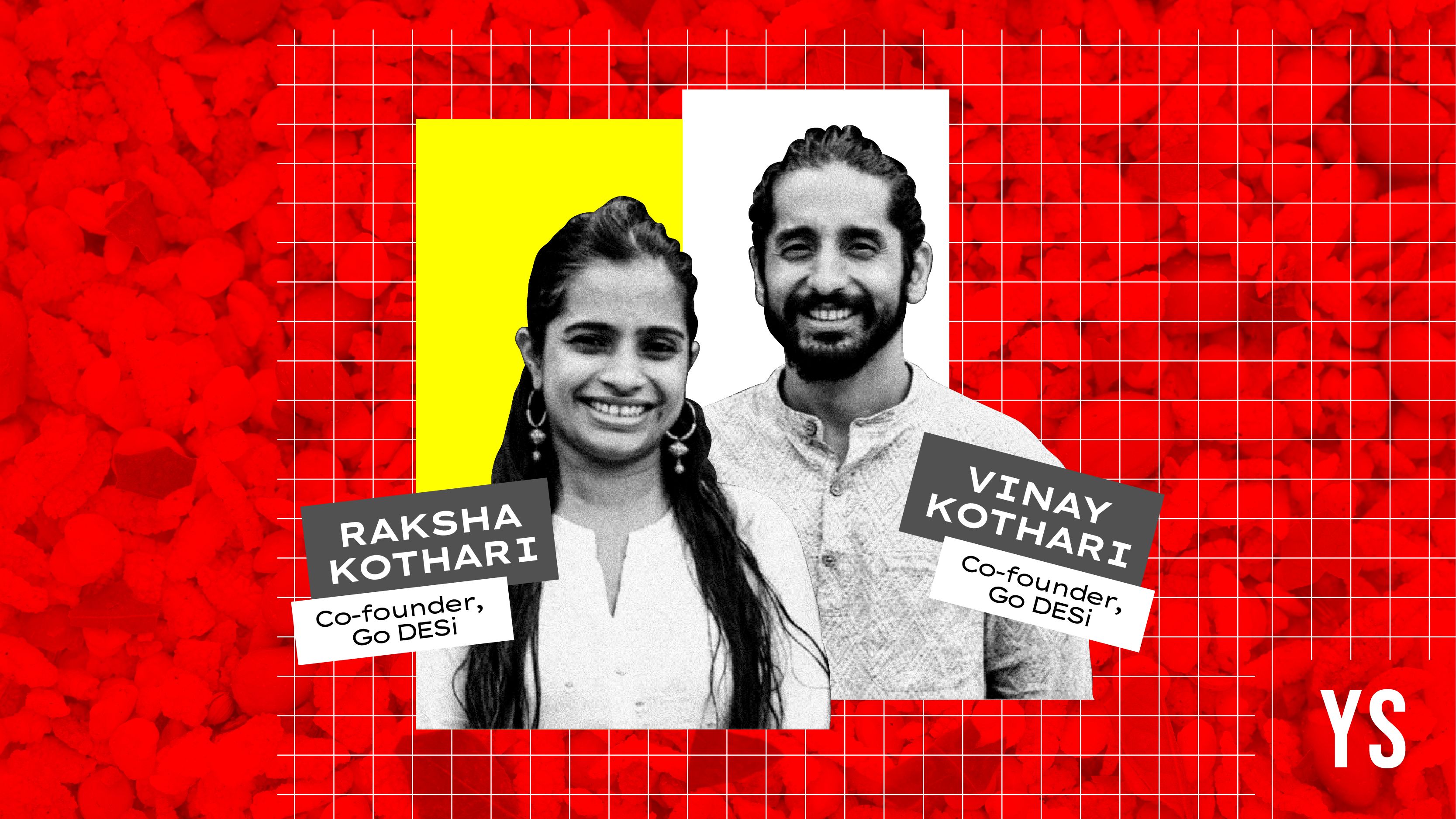“Indian Founders Don’t Think Scale,” says Paul Shoker, VentureFund

It was primarily for this reason, he says, that he wanted to set up VentureFund, a one-stop shop that provides this type of information to entrepreneurs. Secondly, his perspective altered. He became an investor, and joined a number of angel networks. At this juncture, he wasn’t getting the kind of deal flow that he had expected. He would join the club, and then spend Saturday evenings at the investor forums. At these forums, he observed the cracks and crevices of the system. The forums didn’t give him the quality deal flow that he was looking for. This triggered in him an idea to build an ecosystem to address these problems. And, that led to the founding of VentureFund.
YourStory interviewed Paul, and got to know about many interesting facts from him.
Edited Excerpts:
YS: The VentureFund founding team (co-founders include the likes of Rajan Anandan, MD, Google India) is extremely well accomplished. How did all of you get-together?
Paul: A question I ask many entrepreneurs, when they come to me, is that, “who is your team?”. I believe it is the team that makes all the difference. So I also realized that for VentureFund, I needed a team that can help me with a significant amount of barrier to entry. For the team, I looked into my network and talked to some of the people about the idea’s potential and scale, and asked them if they would participate in this idea, and that is how the team was formed.
YS: If you had to look back at your 27 years of starting, running, and mentoring many companies, what would you list as your most significant learnings?
Paul: There are three primary learnings that I derived from all these years: First, acknowledging the fact that you are going to make mistakes, second, be extremely diligent in whatever you do which means you really need to think it through, and third, I think it is really about the execution!
YS: What according to you are the major challenges that Indian startups face while trying to scale?
Paul: I think the biggest challenge is finding a one-stop shop that provides an ecosystem of mentoring and facilitates funding either through incubation, either through an angel, either through private equity or VCs. And, VentureFund is going to help fill that gap.
YS: Many entrepreneurs complain about the quality of investors and mentors in India, what are your thoughts on this?
Paul: There are many good people. The question is most of the entrepreneurs become extremely defensive and emotional when a mentor or an investor tries to explain to them that they haven’t really thought it through. Also, many entrepreneurs here are not thinking big, there are some that are thinking big, but you have to think “massive” today. So, I think there are quality mentors, but I think the mentors do get frustrated where you end up in these kinds of situations.
I mentor companies every week, and I really enjoy this, and for me the only reason for doing this is that we don’t want to make millions and millions of dollars, we are here because we want to share our knowledge. We want to pass everything that we have learnt in 28 years to the next generation. Why can’t we help set up the next Google, or the next YouTube or the next Facebook or Twitter, especially from India. And, that is one of the reasons why I set up VentureFund, and we can say that we are not just outsourcing people, we also come up with some of the best ideas.
YS: So, do you think that Indian founders don’t think scale?
Paul: Yes, I do. I think that the entrepreneurs here are amazing, some of the ideas are wonderful, but what happens is that when they get their cheque from the investors, they not only get excited but they get extremely nervous, and they think they are going to spend the investors money smartly, but you spend because you have to scale! You need to grab market scale. They get very defensive, nervous, make more mistakes. So, I believe Indian entrepreneurs are not thinking scale.
YS: How do you think this mindset can be changed?
Paul: I think this can be changed, and I think people like us are here to change things. We have to be thinking outside of the box and what that means is we got to tell entrepreneurs, come to us we are going to tell you how to think out of the box, how do you think about scale, how do you think about USP, how do you think about bringing that exciting team on board and how do you get significant mentors and advisors on board, and as mentors we need to challenge the entrepreneurs and tell them the truth at every phase. You have to be very tough with the entrepreneurs.
YS: VentureFund is focused globally, how many companies and investors have already listed here? What are your expansion plans?
Paul: Yes, we want to be global, but the way we want to do this is by focusing on India first and what is very interesting is that we have already started receiving plans from various parts of the world and specifically from the UK and the US and we have not even advertised, by the way.
We have already received 1500 business plans in the 8-9 months since we have been going, and again purely through no advertising. Now, the reason why you don’t see all of those plans up on VentureFund is that some of them are not worth putting up, and that is where the online service comes in. For us it is always about quality. We know this is going to take time and we are very happy with that. We are not here to make millions of dollars; I am here to provide a service that is great!
A lot of investors are already on-board, and these investors are coming because of the quality of deal flow, and we have a moderation team that moderates everything.
YS: What is your ultimate vision of VentureFund?
Paul: The vision is to make VentureFund the no.1 mentoring and funding platform for great ideas and the startup community!
YS: What are some of the trends that you have observed in the tech startup ecosystem in India?
Paul: What I am seeing at VentureFund is a lot of people are coming with e-commerce, and a lot of people are coming with energy which is really interesting, education and healthcare are hot as well. I think these are all the utilities and services that the world needs and desires. And, I am starting to see some very imaginative entrepreneurs coming onto VentureFund.
YS: What do you think of the e-commerce sector losing its sheen?
Paul: I think that e-commerce is in its very nascent stages. I think the last two years have been a fantastic learning curve. It has been an expensive learning curve, yet there are many entrepreneurs that are sitting on the sidelines and trying to learn from other entrepreneurs. But I think now e-commerce companies have to start thinking differently, yes there is an opportunity here, and where opportunities lie, there are so many challenges in e-commerce especially in fulfillment. We have a cash economy and not a credit card economy, it will move to be a credit card economy but it will take 4-5 years, then I think India is going to become a very interesting e-commerce market.
YS: Not many people want to join startups, making it hard for the entrepreneurs to build teams, how do you think that can be changed?
Paul: Yes, there is a lack of talent, and there is lack of talent because it is a learning curve, a lot of head-hunting is going on, someone is there at an e-commerce company for six months, and suddenly they think they are the best, they actually learn nothing apart from the politics and problems within that company, and they actually get head-hunted by someone who is offering them another 20%, and by the time they have come to the third company the person has had a 60% increase, which means the person is completely inefficient, that person has absolutely no knowledge! So I think for now, you have to go outside of the region and get people to work for you.
Now, people will join interesting startups, if you demonstrate two very important things,
1) That it is well capitalized, 2) You have an extremely massive vision - we need to think about how in the next 7-10 years can I create a billion dollar business, and that is what I am interested in hearing from people. There are not many of them here, yet. Flipkart is a great story; they are the ones talking a billion dollars.
YS: What advice would you give to younger entrepreneurs who wish to scale globally?
Paul: 1) Get the best team on-board and make sure the company is well capitalized 2) Have a big massive vision
We at YourStory.in thank Paul for his great insights! We wish VentureFund all the best, and will keep you updated about all the happenings at their end. Watch this space.











![[Funding alert] Group health insurance startup Plum raises Rs 7 Cr in seed round led by Incubate Fund](https://images.yourstory.com/cs/2/b87effd06a6611e9ad333f8a4777438f/Imagein12-1594703768248.jpg)